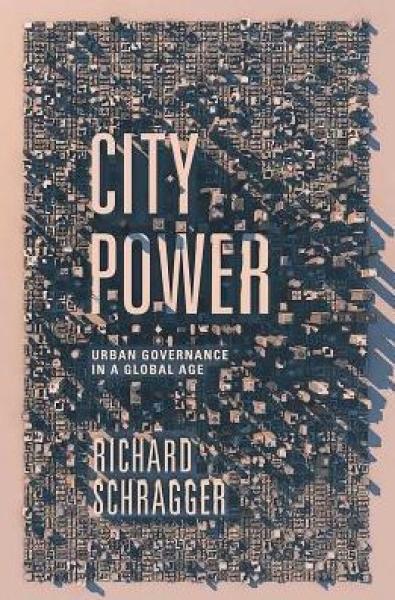Description
Reigning theories of urban power suggest that in a world dominated by footloose transnational capital, cities have little capacity to effect social change. In City Power, Richard C. Schragger challenges the existing assumptions, arguing that cities can govern, but only if we let them. In the past decade, city leaders across the country have raised the minimum wage, expanded social services, and engaged in social welfare redistribution. These cities have not suffered capital flight. In fact, many are experiencing an economic renaissance. Schragger argues that city policies are not limited by the demands of mobile capital, but instead by constitutional restraints serving the interests of state and federal officials. Maintaining weak cities is a political choice. In this new era of global capital, the power of cities is more relevant to citizen well-being than ever before. A dynamic vision of city politics for our new urban age, City Power reveals how cities can govern despite these constitutional limits - and why we should want them to.
"Reigning theories of urban power suggest that in a world dominated by footloose transnational capital, cities have little capacity to effect social change. In City Power, Schragger challenges this conventional wisdom, arguing that cities can and should pursue aims other than making themselves attractive to global capital. Using the municipal living wage movement as an example, Schragger explains why cities are well-positioned to address issues like income equality and how our institutions can be designed to allow them to do so"--
I have been recommending this book to my friends working in community economic development, who are trying to understand what distinctive competency can mean in a global market. I have also been recommending it to students of urban theory, who share the pleasure of following along in the construction of theory-and the space to deconstruct it further. Researchers will find here a raft of theoretical propositions begging for empirical confirmation. And I recommend it to anyone else, for the enthralling fun of watching someone build something new and marvelous from a heap of simple pieces. After reading this book, you will no longer see things quite the same as you did before. -- Tony Filipovitch, Minnesota State University, Mankato, Journal of Urban Affairs
What if cities could exercise the power Schragger suggests? City Power provides a brilliant and challenging legal analysis of the possibilities of local government reform. -- Myron Orfield, University of Minnesota
City Power challenges conventional thinking about what cities should be empowered to do. Instead of focusing on an inter-jurisdictional battle for economic growth, it argues, cities should concentrate on improving basic city services for their own citizens. Whether you agree or argue with it, this book will sharpen your thinking about city power and city powerlessness. A real contribution. -- Gerald Frug, Harvard Law School
Cities are coming back and experimenting with new policies to improve the quality of life and reduce economic inequality. A tour de force of urban scholarship, City Power is the best single source on the possibilities and pitfalls of emerging local progressive movements. -- Todd Swanstrom, University of Missouri
"Reigning theories of urban power suggest that in a world dominated by footloose transnational capital, cities have little capacity to effect social change. In City Power, Schragger challenges this conventional wisdom, arguing that cities can and should pursue aims other than making themselves attractive to global capital. Using the municipal living wage movement as an example, Schragger explains why cities are well-positioned to address issues like income equality and how our institutions can be designed to allow them to do so"--
I have been recommending this book to my friends working in community economic development, who are trying to understand what distinctive competency can mean in a global market. I have also been recommending it to students of urban theory, who share the pleasure of following along in the construction of theory-and the space to deconstruct it further. Researchers will find here a raft of theoretical propositions begging for empirical confirmation. And I recommend it to anyone else, for the enthralling fun of watching someone build something new and marvelous from a heap of simple pieces. After reading this book, you will no longer see things quite the same as you did before. -- Tony Filipovitch, Minnesota State University, Mankato, Journal of Urban Affairs
What if cities could exercise the power Schragger suggests? City Power provides a brilliant and challenging legal analysis of the possibilities of local government reform. -- Myron Orfield, University of Minnesota
City Power challenges conventional thinking about what cities should be empowered to do. Instead of focusing on an inter-jurisdictional battle for economic growth, it argues, cities should concentrate on improving basic city services for their own citizens. Whether you agree or argue with it, this book will sharpen your thinking about city power and city powerlessness. A real contribution. -- Gerald Frug, Harvard Law School
Cities are coming back and experimenting with new policies to improve the quality of life and reduce economic inequality. A tour de force of urban scholarship, City Power is the best single source on the possibilities and pitfalls of emerging local progressive movements. -- Todd Swanstrom, University of Missouri
Last updated on
Product Details
- Oxford University Press, Brand
- Oct 3, 2016 Pub Date:
- 0190246669 ISBN-10:
- 9780190246662 ISBN-13:
- 336 Pages
- 9.3 in * 6.4 in * 1.2 in Dimensions:
- 1 lb Weight:




